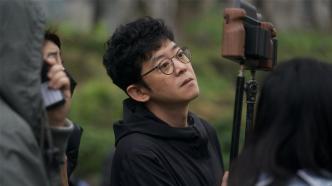
On March 31, the movie "Hachiko" was released nationwide. The film script is adapted from the Japanese screenwriter Kaneto Shindo's "Hachi Gong Monogatari", while the original script is taken from real events in history:
Hachiko (ハチ公) is a legendary dog whose birth and death dates are accurate to the day in the records of the island country (November 10, 1923-March 8, 1935). It used to go to Shibuya Station in Tokyo to welcome the return of its owner, Professor Eisaburo Ueno. Even after the death of the owner, it has been waiting here for 10 years. People even erected statues of this Akita dog when it was still alive.
The story of the loyal dog Hachiko was made into a movie by Japan and Hollywood in the United States in 1987 and 2009, respectively, and put on the big screen. In the view of director Xu Ang, they are all testing different eras and cultures, "also become a touchstone to reflect people's hearts."
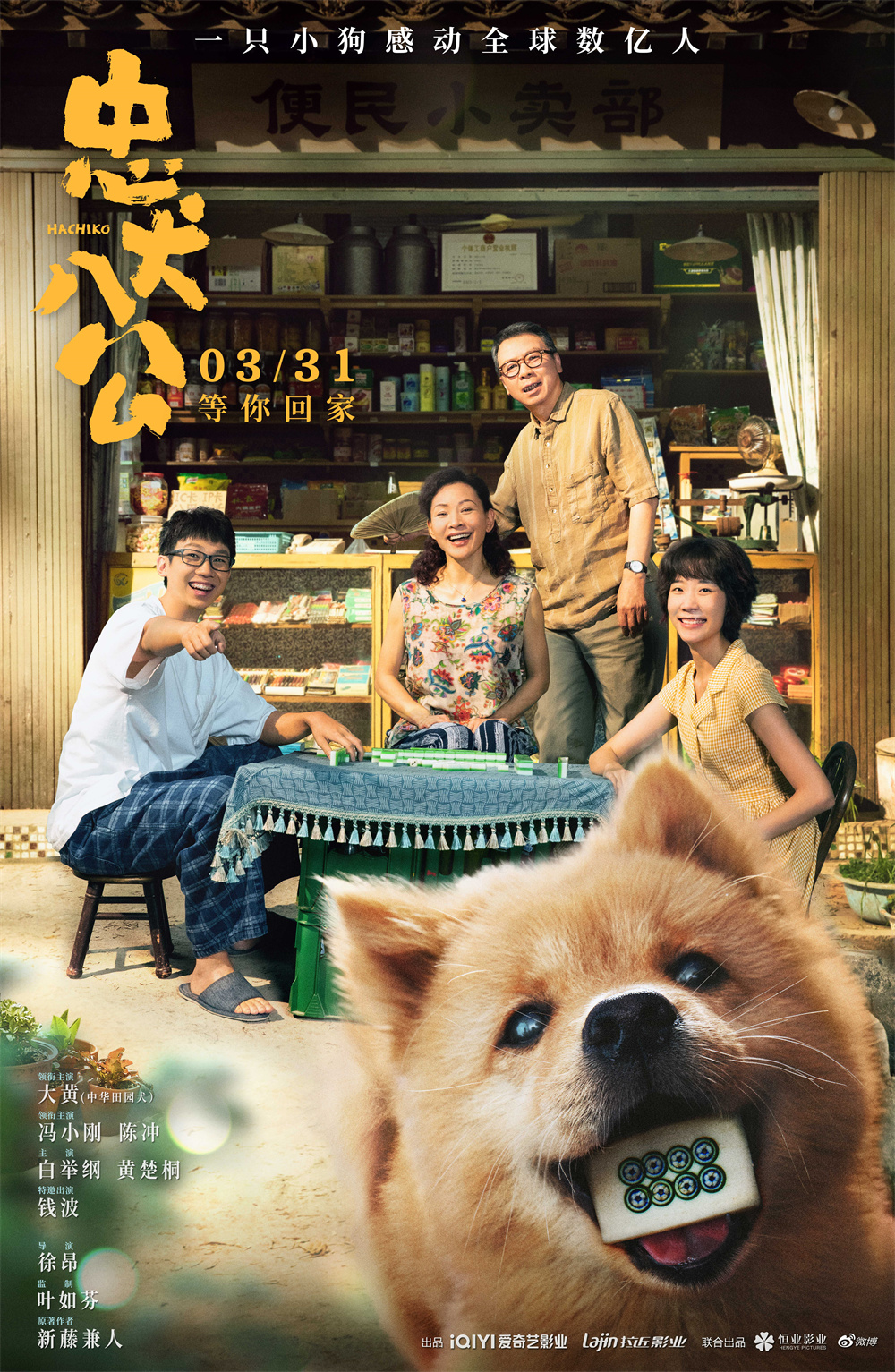
"Hachiko" poster
The Chinese version of "The Faithful Dog Hachiko" uses the Chinese pastoral dog as the protagonist of the story. In the memory of Chinese people, there may be such a picture: in the countryside where the rice paddies are intertwined, or in the corners of the deep alleys in the bustling cities, a kind of simple and honest dog can often be seen. They lean close to humans, or hang out their tongues in the shade of trees to enjoy the cool. People call them earth dogs, rhubarb dogs, vegetable dogs, and Chai dogs... What is embarrassing is that this breed of dog with the widest distribution and largest number in China is also the most neglected existence. In the Chinese dog industry based on Western standards, it was once in a state of no one cared about it. It was not until recent years that it was uniformly named: Chinese Garden Dog.
Director Xu Angben is a dog lover and dog breeder. When interviewed by reporters, he looked back with great interest on the three pet dogs he had raised. He remembers that his first dog was given to relatives later, and when he went to see it again, the puppy recognized him immediately. "It happily ran over and rubbed against my leg, which meant that I wanted me to take it back. But my mother didn't like keeping dogs at the time... I ran away from my relative's house crying, and I didn't have the courage to see it again. Eye."
By May of this year, the current puppy in Xu Ang's family will be 17 years old. "Its eyes are a little cloudy, and its ears are a little hard to hear, but I always remember how it was when it first arrived, especially when it was young. Our family loves it very much and treats it as a baby."
"Choosing the Chinese Pastoral Dog as the protagonist, first of all, I think it looks very good-looking, but many pastoral dogs are neglected by people, but the loyalty of this dog breed is actually very high, and it almost only recognizes the only owner in its life. At the same time, it is also very quiet. It may not always play with you, but it is the first to respond when you stand up or when a stranger visits. I hope that we Chinese can all We love our own Chinese pastoral dog even more." Xu Ang said in an exclusive interview with The Paper.
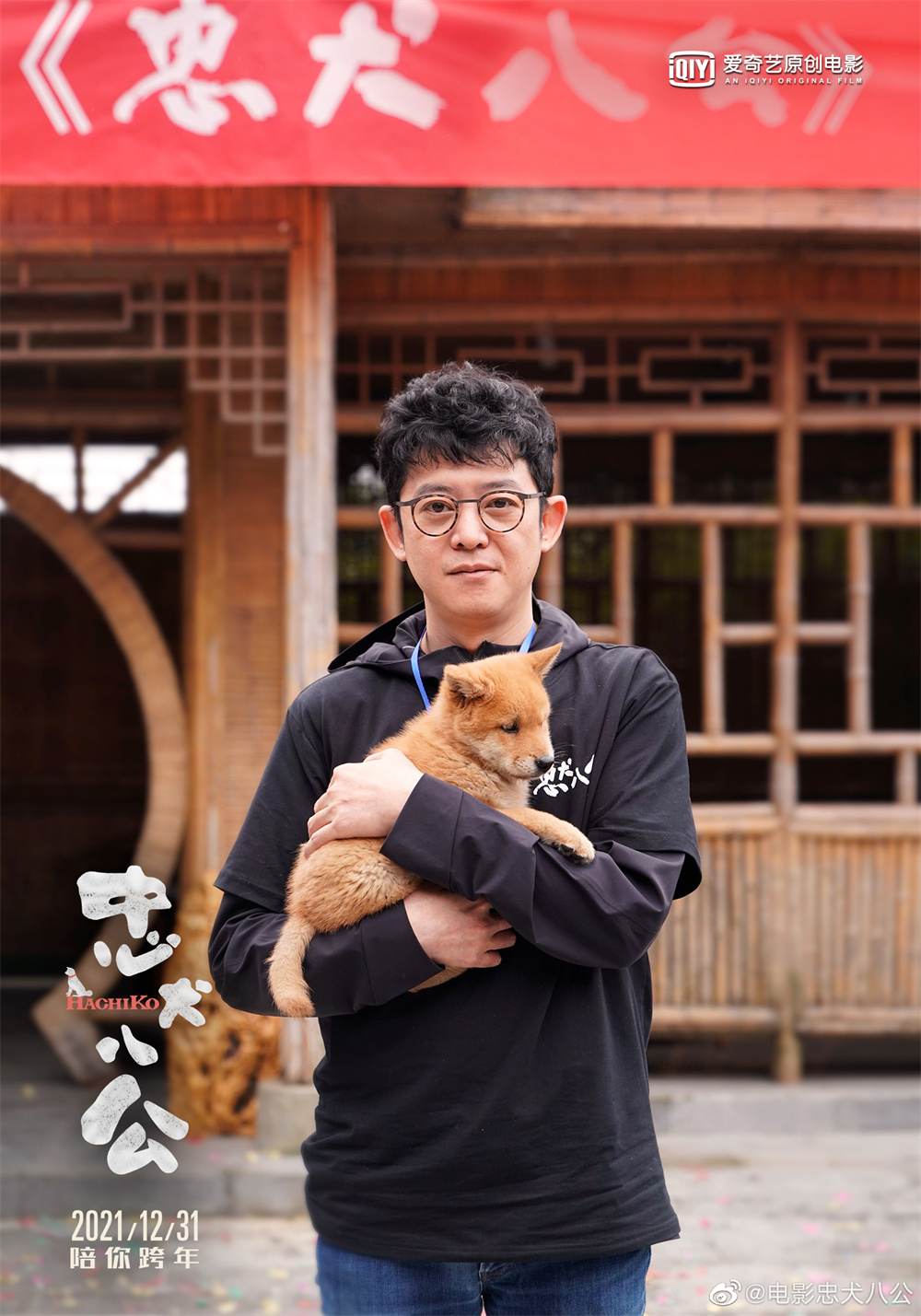
Director Xu Ang when the movie started
【dialogue】
"I like watching animal movies, not pet movies"
The Paper : I noticed that you entered Beijing Renyi after you graduated from the Central Academy of Drama's directing department undergraduate course in 2001. After a short acting experience, he began to work as a stage director. In the resume, apart from Mr. Guo Qihong's "Small Town Freak" and Mr. Zou Jingzhi's "Lotus" and "Playground", most of them have directed foreign plays. As a film director, from "Twelve Citizens" in 2014 to today's "Hachiko", all are adaptations from foreign works. Does this represent a certain tendency in personal artistic taste?
Xu Ang : The type of story I particularly like is that it seems to be describing A, but in fact it wants to talk about B. There is no favoritism in this, but most of the texts in our country are mostly stuck in the matter of facts. For example, with 12 Angry Men, which I directed, it looks like it’s about a court case, legal stuff, but it’s actually about prejudice and father-son relationships.
Films about animals, in my opinion, all such films, including many documentaries, are obviously covered with a human perspective, such as hunting on the African grasslands, what you see from the perspective of zebras is cruelty, and From the perspective of a hungry lion group, you may be grateful for them finally having a full meal. It contains the substitution of human emotions and state of mind. Movies about people and dogs are more often about people, and dogs often represent a kind of expectation of the world-you have a good friend, and he will treat you as before for five or ten years, even after you die. I will never forget you, such a friendship is rare, and it is what we all look forward to. So there is a saying: the more people I know, the more I like dogs.
I like watching animal movies, but I don't like watching pet movies. The latter over-anthropomorphize animals, which tastes too sweet, and the narrative also makes people feel procrastinated. This is what I tried my best to avoid when filming "Hachiko". There is a dialectical relationship here, the more you make it look like a dog, the more the audience will embed human emotions in it, and vice versa.
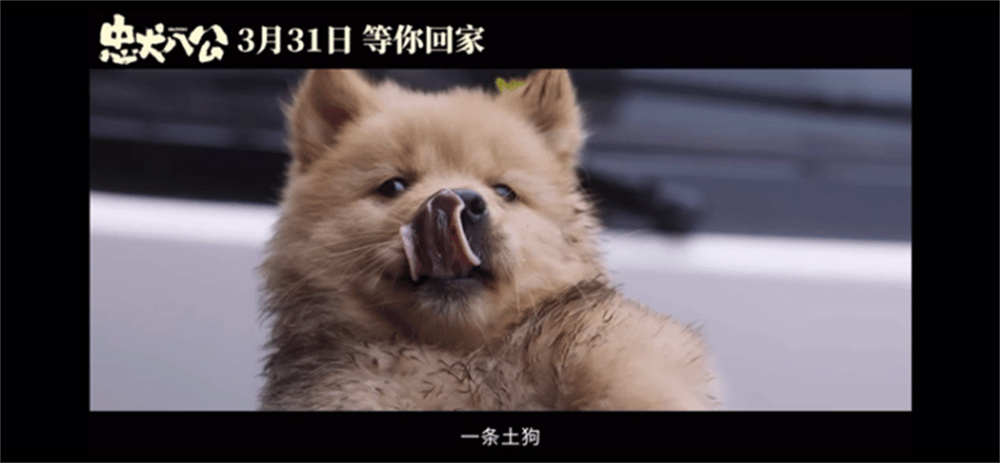
Screenshot of the trailer of "The Faithful Dog Hachiko", when Batong was a child
The Paper : So I want to raise a question in advance, the protagonist Rhubarb in "The Faithful Dog Hachiko", what kind of human-like "actions" do you want to avoid in this Chinese pastoral dog?
Xu Ang : In the movie, we didn't let Rhubarb's behavior exceed the cognitive ability that a dog should have. For example, it will not put its paw on the human owner to express "comfort" when the human owner is sad. Because I also have dogs, I understand the behavior of dogs, it will not "act", but it will cover up. For example, my dog has pica, and it always likes to eat its own excrement. After a period of training, once it finished pooping, our family watched it, and it stretched and wagged its tail, intentionally or unintentionally wanting to get close to its own excrement, but at the same time Observe the owner's reaction. All the behaviors of Rhubarb in "The Faithful Dog Hachiko" reach this step at most.
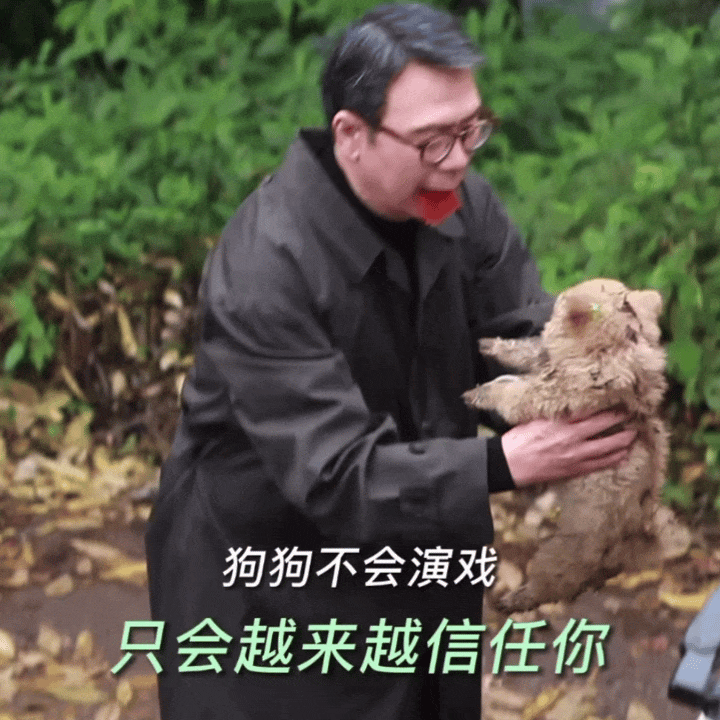
The Paper : "Hachiko" is adapted from the original script "The Story of Hachi" by Kaneto Shinto. What is your purpose in the process of localizing the script in China? In particular, this story was made into a Japanese movie in 1987 and was remade by Hollywood in 2009. How do you rate these two films?
Xu Ang : I have watched these two films, and they can both bring the audience a very good story experience, which is undeniable. The Japanese version is the first edition. It sets the background of the story in Japan after the defeat in World War II. The Akita dog named Hachi is like a boy from Akita County in the countryside. He came to the home of Professor Ueno in Tokyo and brought With a curious perspective, I blend into the post-war Japanese urban families. In the American remake, this Akita dog comes from a temple in Japan, with a Western culture's curiosity about the East-it is a standard Hollywood movie, and the creators know the psychological rhythm of the audience very well, making some of them more painful Things have been softened accordingly.
Relatively speaking, the Japanese version was shot more cruelly. Because at that time in Japan, there was a feeling of failure and frustration in society. The departure of the professor's daughter and the death of the professor in the movie all reflect this kind of emotion and are closer to the truth of life. Under such circumstances, when a person is faced with a difficult choice, the fate of a dog is actually the reason he least cares about. But in the American version, these were not magnified or made too much preparation, and did not burden the humans in the film with too much moral burden. It can be said that the American version of the story is established in any stage of American society after the "Black Ship Incident". In fact, the story of Hachiko, the loyal dog, is true in history. I think that the subsequent film interpretations are all testing different eras and cultures, and they have also become a touchstone to reflect people's hearts.
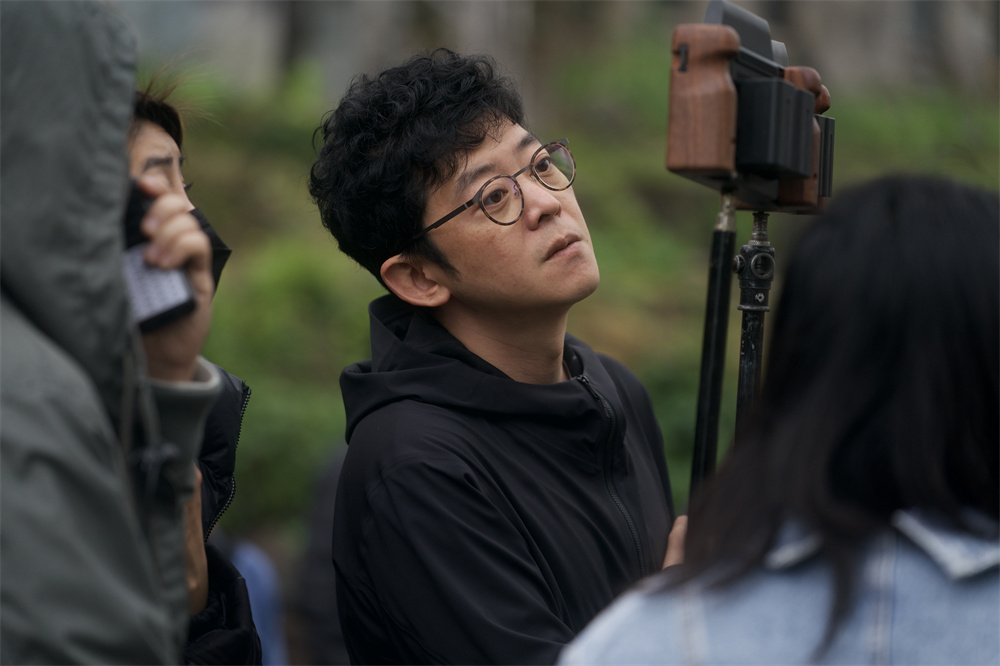
Director Xu Ang works on the set.
"Don't force these dogs to do anything they don't want to do"
The Paper : Rhubarb in the film is from Yunyang, Sichuan, an "orphan" during the construction of the Three Gorges; Chen Jingxiu in the film is also an immigrant from Beijing, and "Beijing has no other relatives" - considering the historical background, Chen may be Immigrated to Chongqing during the third-line construction period. We all know that since the construction of the Three Gorges in the 1990s, millions of people immigrated. How did you integrate this historical event into the adaptation and implementation of the story as a background?
Xu Ang : We have seen some documentaries and movies about the immigration history in the Three Gorges Reservoir area. Many villages have disappeared under the water. This brings me an association, when people have migrated, what about the dogs in the village? In the Japanese version of the movie, it came from the countryside of Akita. In the American version, it came from a Japanese temple. In the Chinese version, I chose to let it come from the Three Gorges Reservoir area, which entrusts our understanding of the society in that historical period. A sense of change. Since this Chinese pastoral dog comes from the Three Gorges reservoir area, it is like the "Bang Bang" (porter) commonly seen on the streets of Chongqing in the past, so it is logical to come to the big city closest to the Three Gorges.
The Paper : Chongqing has often appeared in film and television dramas in recent years. People call this mountain city the "Magic City". There are railroads passing through buildings and Yangtze River cable cars flying in the sky. When looking at the scenery, which landscapes do you think should be preserved, and which landscapes, such as Hongya Cave, should not appear?
Xu Ang : At present, most of the films that go to the city of Chongqing are showing the "magic" and magic of the city. I chose the city of Chongqing, on the one hand, because of the origin of this dog, and on the other hand, when I chose these scenes, I did not specifically choose its "odd" and "special", but valued those who are more human. A place with fireworks, with the warmth of citizens, and a place with the characteristics of the era. The so-called must-go places in Chongqing on the Internet have long been familiar to the locals. They more remember the cold dishes mixed in the small noodle restaurants on the street, and the party on the roof of their house was held in the courtyard. The wedding, everyone remembers these. Likewise, we are not looking for novelties in this city.
Furthermore, in stories like the loyal dog Hachiko, the waiting and waiting scenes are very important. If you put this matter in the Beijing Dawang Road Subway Station, where my current home is nearby, everyone will think that this matter is not valid-a few years ago, a domestic dog got lost here and ran around. Also on the news. What if a Chinese pastoral dog has been kept in Beijing CBD for ten years? That sounds implausible.
The screenwriter of our film is Zhang Hansi, a Chongqing novelist. After he accompanied us to Chongqing, I first discovered that this is a city separated by the river. Living on one side of the river and working on the other side is a daily life experience for many Chongqing people. And this kind of daily "separation" may seem normal to humans, but in the eyes of a puppy, we know that animals cannot or cannot take public transportation. The Batong in the movie did not cross the river until it died. We only let it take the cable car with Chen Jingxiu after following the owner, which has a romantic ending.
Coincidentally, when we came to the Yangtze River cableway, there was a dog waiting for someone. I don’t know who it was waiting for, but after taking a look at us, it got up and ran away. I believe it is possible to put this waiting story in Chongqing. Moreover, this mountain city is high and low, and there are many places where vehicles cannot get up, and kittens and dogs can be seen in every corner. Generally speaking, Chongqing is a city that is more tolerant to small animals.
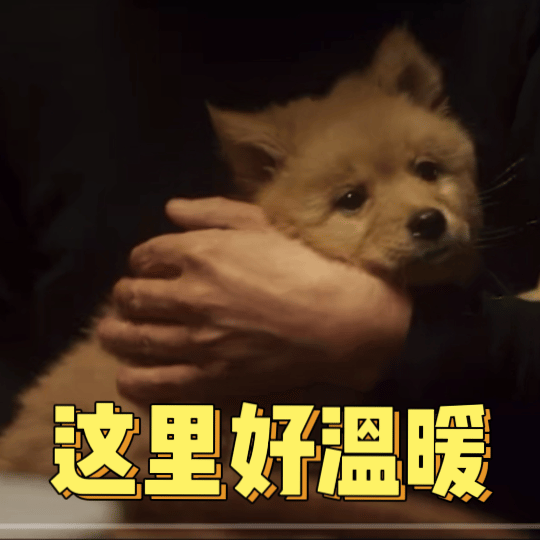
The Paper : Making movies involving animals is the biggest challenge for the creators. Talking about the selection of the role of Rhubarb, at least two Chinese pastoral dogs, juvenile and adult, must appear in the film. Why was this breed chosen? Talk about training and which scene was the hardest to shoot?
Xu Ang : In order to shoot this movie, we actually found 18 Chinese garden dogs back and forth. Making movies about animals is very complicated, because human performances can be a dramatic record, while the final presentation of animal performances must be Eisenstein's montage-style editing. Specifically, when it comes to the selection of dog actors, the dog breed is first involved, which is also related to what kind of comments the creator will hear from the audience after the movie is released.
I don’t want to make a pet movie, so it’s not appropriate to use a very disciplined Jingba. At the same time, there were far from such abundant dog breeds on the market in those days. Shiba Inu and Bulldogs were not so common, and Dog breeds in the alpine zone are not suitable to appear in such a hot city as Chongqing. After much deliberation, our Chinese pastoral dog, which comes from a farm in Yunyang County in the reservoir area, is the most suitable.
After selecting the Chinese Pastoral Dog, it takes a lot of time to train, and many of these dogs come from the "survivors" of the vegetable market. They don't trust humans very much, and it takes one or two years to cultivate a trust relationship. In the movie, there is a plot where the puppy comes home with a newspaper in its mouth. From entering the painting to leaving the painting, it has to come down the stairs with the newspaper in its mouth. But this little dog was very careful, before going down the steps with the newspaper in his mouth, because the newspaper blocked his view, he would put down the newspaper every time he came here before going downstairs. Then we can only shoot it over and over again. A successful shot is only four or five seconds in the movie, but we may shoot it no less than thirty or forty times. This also involves the issue of how to train. We need the movements of the puppy in the movie to look natural, rather than well-trained like a police dog, so that a puppy has the ability to "perform" in life. It's so difficult. Basically, it gets tired or tired after working for half an hour, and the whole team has to wait until it has a rest. This is not to say that it is enough to change the dog on the spot, and it must also be considered that the scene cannot be skipped when the camera is connected.
When we designed the training and shooting program from the beginning, we set a rule not to force these dogs to do anything they don't want to do. There is a puppy swimming scene in the movie. For this purpose, we trained several adult dogs for more than a year. Some puppies are naturally afraid of water, so we can only follow the tricks and find out which one of them can complete this task. Then there are scenes where both humans and dogs are present. Humans can interfere with the performance of dogs, but there is a scene in the movie where two puppies "fall in love". This human can't really interfere. If they don't see each other, they can immediately When they fight, how can they have those "lingering" seconds between them? The first class is often also a day.
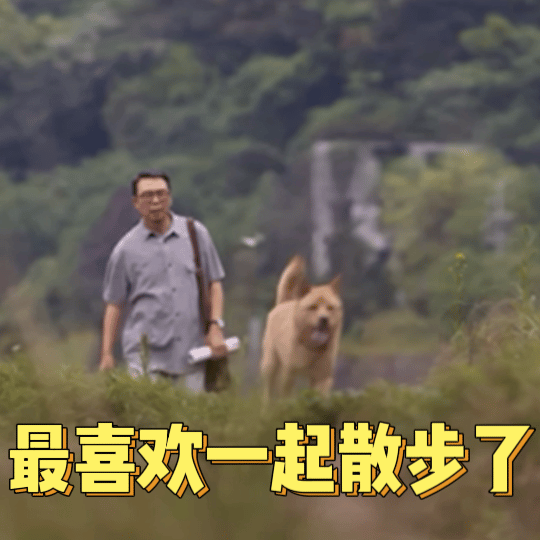
"Whether the audience gets an A or a B, it doesn't affect the expression of this movie"
The Paper : How were Feng Xiaogang and Chen Chong selected? The two of them also have the identity of directors. I also want to know, everyone is a director, how to interact on the set?
Xu Ang : As a director, Mr. Xiaogang has his own unique aesthetics on many issues, and the performance itself, I think, is an aesthetic process. Teacher Xiaogang used a very life-like and restrained approach this time. He did not choose some particularly hypocritical and deliberate shaping schemes. I know exactly what kind of stylized performance he will have if a professional actor is hired to shape it, including at which point he will deliberately strengthen the sense of play between humans and dogs, and this kind of performance is exactly what we No need this time. Furthermore, director Xiaogang is the best actor in the Golden Horse Awards after all, and he is the number one among our male actors, and he is playing a Beijing immigrant in Chongqing, which is too much for him. It's easy to get used to.
This is the case with Mr. Chen Chong. When it was confirmed that Mr. Xiaogang would play Chen Jingxiu, the selection of his wife Li Jiazhen in the film dropped like a quantum collapse. It is not easy to find an actor who plays with Mr. Xiaogang and who is not bad in acting aesthetics, especially in the last part of the film (after Chen Jingxiu's death) her role is very important. This role is difficult to play in a certain sense of. You mentioned Teacher Xu Fan, of course she is a good actress. Mr. Xu is from Hubei, so it’s okay to make a slight adjustment in the dialect, but if the couple is asked to act as a "husband and wife", the audience will bring other things to watch the movie, and they cannot substitute what should be in the plot. Character Relationships. In the end we still invited Mr. Chen Chong.
During filming, the three of us got along very well. Teacher Xiaogang and I have established a very good friendship. Teacher Chen Chong will return to the United States after filming, and we have not seen each other for some time. In fact, the three of us are relatively consistent in terms of aesthetics and judgment. Most of our choices on the set coincide with each other, and there will not be much difference. In some scenes, when we encounter particularly difficult problems, Mr. Xiaogang must have his own solution in his experience, and Mr. Chen Chong and I also have our own solutions, so we will try all the solutions. one time. In the end, we found that when making animal movies, we still need to respect the state of animals (laughs).
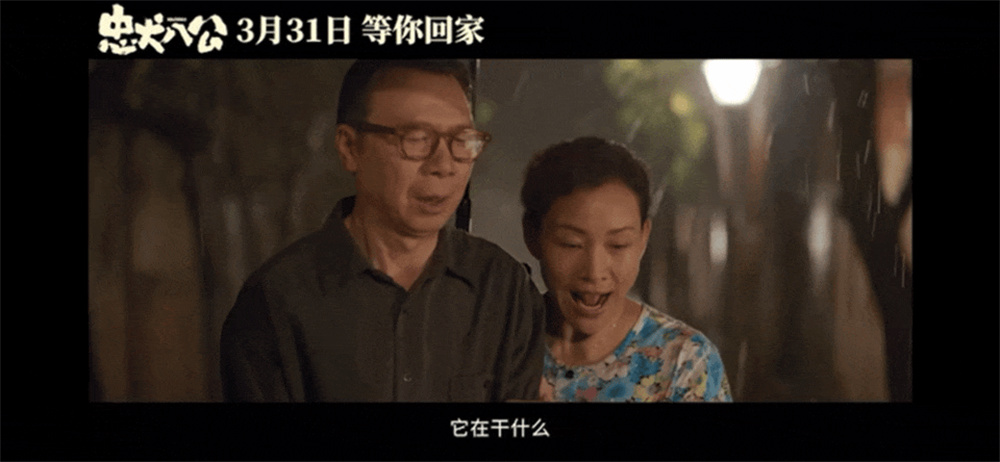
Feng Xiaogang and Chen Chong play the couple in the film
The Paper : As a theater director, you have a reputation for crafting your lines in the past. What are the highlights of the interpretation of Chongqing dialect in the film?
Xu Ang : In "The Dog of the Loyal Dog" directed by me, we actually put a lot of our memories of Chinese history in the past 30 years. The dualistic split, after the reform and opening up, especially since the 1990s, the process of urbanization has been greatly accelerated. In a sense, even in the cities, we feel like we are “immigrants”. Take me for example, I grew up in a compound in Beijing when I was a child, but the environment around me has been changing drastically in the past few decades. I once took a friend to visit my old house, only to find that the building and even the area there have long been changed, and to be precise, the things are no longer "right". Only then did I realize that the old place in my memory was actually the scene in its heyday. At this time, even if I have not left the so-called homeland, I still feel a sense of wandering.
We can take director Feng Xiaogang's early New Year's films as an example, which are basically presented in Beijing dialect, but if you now use Beijing dialect as the creative language to make a movie, you may find that it can no longer correspond to the current Beijing. In a private meeting with Mr. Wang Shuo, he mentioned his confusion, thinking that if he writes novels in Beijing dialect again, it will give people the feeling that he is talking about things before 1949 or in the 1980s Son. Nowadays, the entire Chinese language system is actually "decentralized". Everyone speaks a kind of Mandarin. The "Mandarin" you hear in Beijing is just some Beijing Mandarin mixed with regional colors. It is also the same in Shanghai. In this way, it is basically Mandarin plus some local dialects - it is not the native language of the hometown, nor is it standardized Mandarin. The reason behind this, in my opinion, is that the entire country is urbanizing too fast, so we also added a sentimental tone to the movie-when the surrounding environment is changing drastically, many human touches in the past, including people who used to The way of communication has also dissipated or faded.
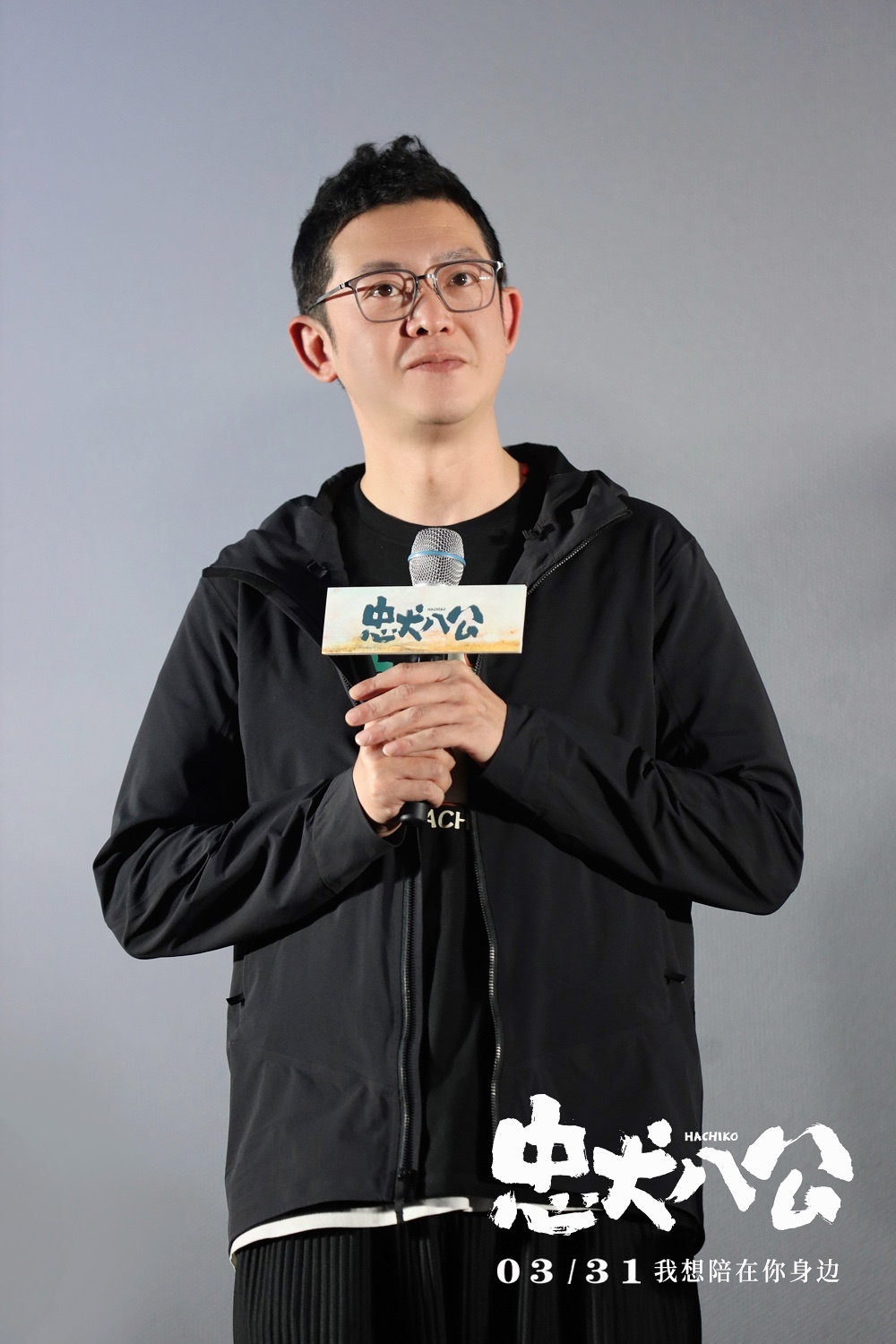
Director Xu Ang at the premiere of the movie "Hachiko" in Beijing
The Paper : The timeline of the film's story is not clearly explained in the film, but through the voice-over of the football game on TV, the audience can understand it naturally. From the time when Guoan played Shenhua 9:1 in the A-A era, to the Chinese national football team losing 1:5 to the Thai team, it can be roughly inferred that the story is from 1997 to 2013. Could you please talk about this?
Xu Ang : You have summed it up very well. I think so. Different audiences will have different experiences watching this movie. If you sieve it carefully, you will see a lot of things other than the story. appreciate. Going back to what I said at the beginning of our interview, whether the audience gets A or B, I don’t think it will affect the expression of this movie, because we have expressed both A and B.


